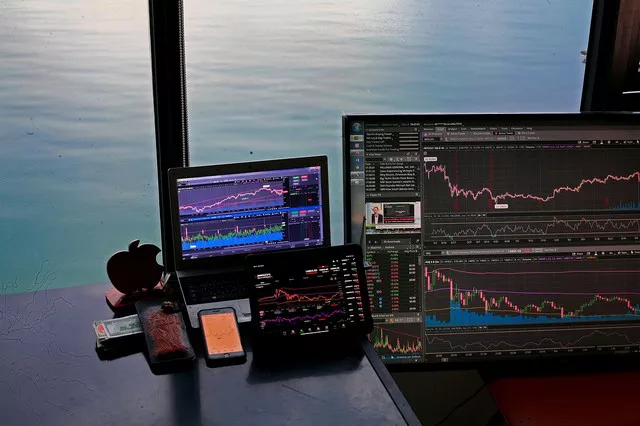Orange juice futures have been attracting significant attention in the commodities market due to their relatively high prices compared to historical averages. This phenomenon has led traders, investors, and industry stakeholders to question the factors driving the elevated prices of orange juice futures contracts. In this article, we delve into the complexities of orange juice futures markets, exploring the underlying factors contributing to the high prices, analyzing supply and demand dynamics, weather conditions, market sentiment, and other variables influencing orange juice futures prices.
Supply and Demand Dynamics
One of the primary factors influencing the high prices of orange juice futures is the interplay between supply and demand dynamics in the orange juice market. Orange juice is a popular beverage consumed worldwide, prized for its nutritional value, refreshing taste, and health benefits. As a result, demand for orange juice remains relatively stable, driven by factors such as population growth, changing consumer preferences, and the increasing popularity of health-conscious diets.
On the supply side, however, orange juice production is subject to various challenges and uncertainties, including weather conditions, disease outbreaks, and agricultural pests. Orange trees require specific climatic conditions, such as mild winters and adequate rainfall, to thrive and produce high-quality fruit. Any disruptions to weather patterns, such as hurricanes, frost, or drought, can adversely affect orange yields and reduce the availability of oranges for juicing.
In recent years, adverse weather events in major orange-producing regions, such as Florida and Brazil, have led to declines in orange production and constrained supplies. This supply squeeze has put upward pressure on orange juice prices, as market participants anticipate shortages and adjust their expectations accordingly. Additionally, disease outbreaks such as citrus greening, a bacterial infection that affects citrus trees, have further exacerbated supply concerns and contributed to the high prices of orange juice futures.
Market Sentiment and Speculative Activity
Market sentiment and speculative activity also play a significant role in driving the prices of orange juice futures. Traders and investors closely monitor news and developments in the orange juice market, including weather forecasts, crop reports, and supply estimates, to gauge market conditions and anticipate price movements. Positive news such as expectations of strong demand, favorable weather forecasts, or government policies supporting agricultural production can boost market sentiment and lead to increased buying activity in orange juice futures.
Conversely, negative news such as reports of crop damage, disease outbreaks, or trade disruptions can trigger selling pressure and drive prices lower. Speculative traders, including hedge funds, commodity trading advisors (CTAs), and proprietary trading firms, actively participate in orange juice futures markets to capitalize on short-term price movements and profit from price discrepancies. Their trading activities can amplify price volatility and contribute to the high prices of orange juice futures, particularly during periods of heightened uncertainty and market turbulence.
Global Economic Factors
Global economic factors such as exchange rates, inflation, and trade policies can also influence the prices of orange juice futures. Orange juice is traded internationally, with major producing countries such as Brazil, the United States, and Mexico exporting orange juice to markets around the world. Fluctuations in currency exchange rates can affect the competitiveness of orange juice exports, as changes in exchange rates impact the cost of production, transportation, and pricing of orange juice in global markets.
Inflationary pressures and changes in consumer purchasing power can also impact the demand for orange juice and influence futures prices. Inflation erodes the purchasing power of consumers, making food and beverage products such as orange juice more expensive relative to other goods and services. As a result, consumers may reduce their consumption of orange juice or switch to cheaper alternatives, leading to lower demand and downward pressure on prices. Conversely, periods of economic growth and rising incomes can stimulate demand for orange juice and support higher prices in futures markets.
Trade policies and tariffs imposed by governments can also affect the prices of orange juice futures by influencing trade flows, market access, and pricing dynamics. Trade disputes between major trading partners, such as the United States and China, can disrupt supply chains, increase costs, and introduce uncertainties into the orange juice market. Tariffs on orange juice imports can impact the competitiveness of domestic producers and affect pricing strategies in futures markets, leading to fluctuations in prices and volatility.
Conclusion
In conclusion, several factors contribute to the high prices of orange juice futures, including supply and demand dynamics, weather conditions, market sentiment, speculative activity, and global economic factors. Adverse weather events, disease outbreaks, and supply constraints in major orange-producing regions can lead to shortages and higher prices in futures markets. Market sentiment and speculative trading activity can amplify price volatility and contribute to the high prices of orange juice futures, as traders react to news and developments in the orange juice market.
Global economic factors such as exchange rates, inflation, and trade policies also play a significant role in shaping the prices of orange juice futures, as they influence demand, supply, and pricing dynamics in global markets. Understanding the interplay between these factors and their impact on orange juice futures prices is essential for traders, investors, and industry stakeholders seeking to navigate the complexities of orange juice markets and manage their risk exposures effectively. By staying informed, monitoring market developments, and employing risk management strategies, market participants can make informed decisions and capitalize on opportunities in orange juice futures markets while mitigating potential risks.


